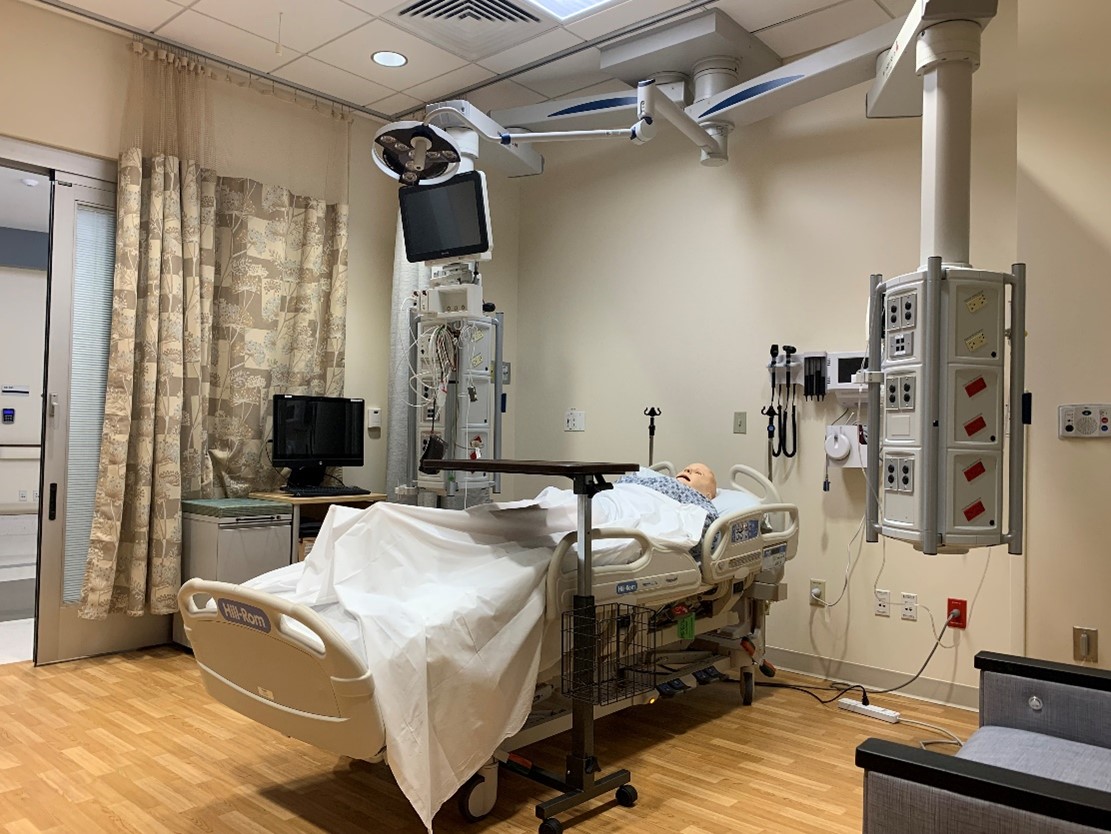Nursing is the backbone of the health care industry. Nurses provide screenings, collect information that could be critical to your health care, and support treatment of sick, hurt, and dying patients. That’s why it is important that nurses at VA not only have the skills to deliver quality care, but also possess the confidence to make sound clinical decisions. Simulation training is helping them to do just that.
Simulation training
The COVID-19 pandemic resulted in many new nursing graduates having to enter the nursing profession with less-than-optimal hands-on experience. Many first-year nurses express a lack of confidence because so much of their training has been online. Simulation trainings through the Simulation Learning, Evaluation, Assessment, and Research Network (SimLEARN) serve as a bridge for these new graduates to gain that confidence while enhancing their skills. SimLEARN is the Veteran Health Administration’s (VHA) program for simulation in health care training and provides courses and tools that improve Veteran wellbeing.
In 2020, the South Texas RN Transition-to-Practice (RNTTP) program advisory board at the South Texas Veteran Healthcare System determined there was a need to include simulation in their curriculum. The South Texas RNTTP team jumped into action to develop a simulation program for new nursing graduates that complimented its core courses. The South Texas Simulation Center collaborated with the RNTTP program director and chief of nursing education to develop an assessment and training plan that would be in person and meet the needs of new nurse graduates. That plan moved the program from having no simulation sessions to more than 30% of all training time being in simulation.
The South Texas Simulation Center integrated high-fidelity simulation, or patient scenarios with a high level of realism, that focused on complex patient care incidents. Each simulation was built to bring the educational focus to life and evaluate the nursing residents’ skills, knowledge and attitudes while immersing them in the learning activity. The South Texas RNTTP program’s mission statement is to aid the new nurse residents in building professional competency and confidence. Each educational focus was translated into a simulation learning model to enhance a learners’ confidence and skills.
Through the simulation activities, new nurses gained problem solving expertise, team-based skills, decision making techniques and practical experience. The feedback from new nurses has been overwhelmingly positive.
One nursing resident said, “I feel like, now, I am going to know how I will react… this will allow me to better serve the Veteran as a nurse.” Other RNTTP programs throughout VA have incorporated simulation into their courses as a way to reimagine learning for health care workers throughout the enterprise to enhance Veteran care and wellness for years to come.
Topics in this story
More Stories
Bob Jesse Award celebrates the achievements of a VA employee and a team or department that exemplifies innovative practices within VA.
The Medical Foster Home program offers Veterans an alternative to nursing homes.
Watch the Under Secretary for Health and a panel of experts discuss VA Health Connect tele-emergency care.






